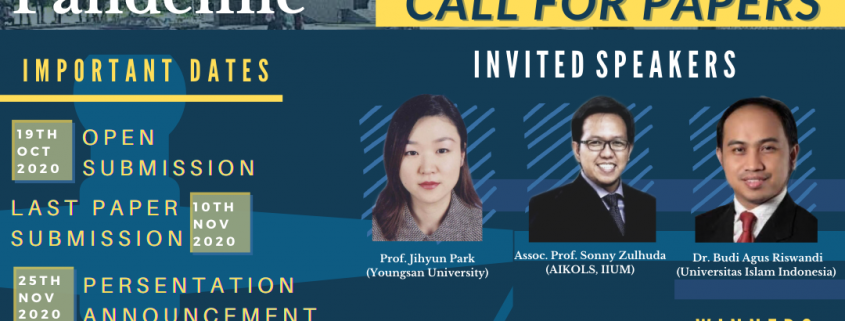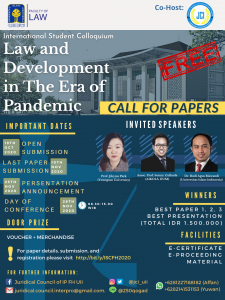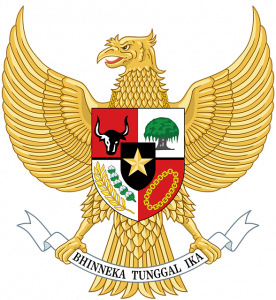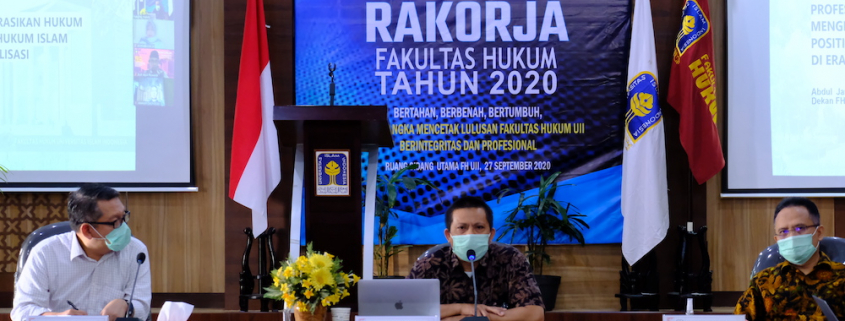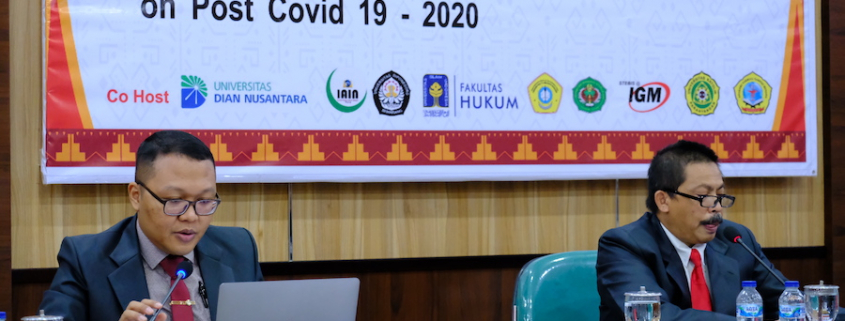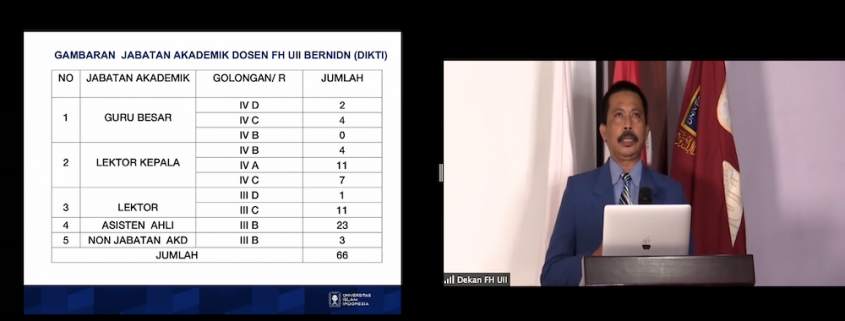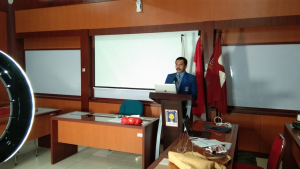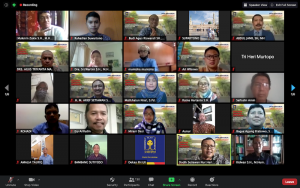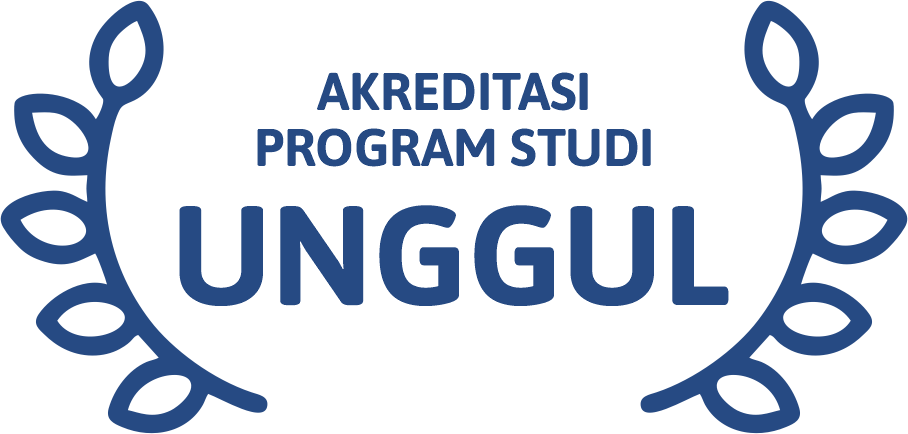Author: Dr. Idul Rishan, S.H., LL.M
Lecturer in Faculty of Law, Universitas Islam Indonesia, Departement of Constitutional Law
Setelah revisi UU KPK disahkan pada pengunjung 2019, seharusnya pemerintah bersama DPR melakukan evaluasi atas performanya dalam melaksanakan fungsi legislasi. Saat itu, mereka dihujam kritik dan penolakan publik atas perubahan UU KPK. Prosesnya dikebut secara cepat, tanpa partisipasi dan tidak akuntabel.
Tanpa belajar dari proses perubahan UU KPK, sulit untuk memperoleh kembali kepercayaan publik atas produk legislasi yang dihasilkan. Belum lagi pemerintah dihadapkan dengan pandemi Covid-19, yang mengharuskan pembentuk UU segera beradaptasi atas performanya di bidang legislasi diharapkan tetap berjalan secara transparan, partisipatif, dan akuntabel.
Dengan membaca realitas saat ini, tampak kinerja legislasi di bawah standar. Perubahan UU KPK disusul UU Minerba, UU MK, dan UU Cipta Kerja nyatanya melahirkan delegitimasi sosial secara masif di masyarakat.
Tom Ginsburg dan Aziz Huq (2016) memelopori konsep evaluasi performa konstitusi (assessing contitutional performance) unutk memangkas jarak (gap) antara harapan (sollen) dan realitas (sein) pada bunyi teks konstitusi dan performanya di tataran praktis.
Hasil studinyam ada tiga faktor utama yang menyebabkan konstitusi tak dapat perform dengan dalam merespons kepentingan publik: (1) akibat realitas politik, (2) pengaruh kelompok-kelompok penekan, dan (3) faktor-faktor non hukum, seperti teknologi dan birokrasi. Sejalan preposisi Ginsburg dan Hug, kinerja legislasi kita sebenarnya sedang berjalan di luar pakemnya.
Oleh karena itu, tak heran jika kebutuhan evaluasi kinerja legislasi menjadi kian mendesak guna memulihkan performanya untuk kembali berjalan dalam kenormalan baru. Harus diakui, bangunan norma-norma, konstitusi yang mengatur fungsi legislasi dalam UUD meletakkan hubungan Presiden dan DPR dalam mode fifty-fifty formula.
Setiap lembaga diletakkan sebagai pemegang otoritas dalam pelaksaan fungsi legislasi dengan skema persetujuan bersama (mutual approve). Asumsinya diharapkan ada keseimbangan relasi berdasarkan prinsip checks and balances diantara keduanya danlam membahas dan menyetujui RUU. Logikanya sederhana, jika salah satu lembaga oembentuk UU tak mencapai persetujuan, RUU akan ditarik dan tak akan diajukan lagi pada masa itu. Sayangnya, realitas politik saat ini justru tidak menopang bekerjanya fungsi legislasi dengan baik.
Pengaruh oligarki
Tanpa disadari, presiden yang memperoleh dukungan mayoritas parpol di DPR turut memengaruhi kinerja legislasi yang dilakukan secara bersama. Dengan koalisi kepartaian, yang “super gemuk” di DPR hubungan keduanya cenderung kompromistis satu sama lain. Imbasnya, fungsi legislasi berjalan mulus tanpa adanya saling kontrol.
Anasir ini perlu dijadikan bahan evaluasi secara mendalam. Persepsi yang diletakkan para periset hukum dan politik yang menyatakan bahwa koalisi gemuk memperkuat stabilitas politik dan sistem presidensial menjadi relevan dievaluasi kembali. Berkaca pada empat UU terakhir (UU KPK, Minerba, MK, dan Cipta Kerja), koalisi gemuk justru tak lagi jadi solusi, tetapi sebuah ancaman karena dapat mematikan pengawasan politik di DPR atau sebaliknya.
Hal lain yang mempengaruhi menurunnya performa legislasi tak dapat dilepaskan dari kekuatan kelompok-kelompok penekan dalam menentukan isi UU. Mereka bukan pembentuk UU, tetapi mempunyai pengaruh yang cukup kuat dalam menentukan isi pasal yang ditentukan dalam proses legislasi. Dalam analisis Jeffry Winters (2013), mereka umumnya kaum oligark yang cenderung memengaruhi agar produk legislasi lebih kental keberpihakannya kepada kelompok elite dibandingkan kepentingan masyarakat luas.
Pada titik ini, aspek formil pembentukan UU seharusnya bisa menjadi aturan main bagi para pembentuk UU dalam melaksanakan fungsi legislasi. Naskah akademik seharusnya bisa jadi garis pembatas masuknya kepentingan kelompok-kelompok penekan yang akan mempengaruhi isi sebuah pasal dalam UU.
Dalam studi legisprudensi (Luc J Wintgens: 2012), aspek formil merupakan jantung keberhasilan sebuah pembentukan UU. Ia menitikberatkan rasionalitas dalam setiap harapan pembentukan UU. Bahwa proses yang baik itu tak akan pernah mengkhianati hasil. Hal ini yang belum terlihat dalam proses legislasi dalam beberapa UU terakhir. Aspek formil begitu mudah diterabas akibat sikap pragmatis partai, kemudian dibajak oleh kepentingan kaum oligark.
Kemudian faktor nonhukum, seperti birokrasi dan teknologi, juga ikut mempengaruhi performa legislasi dalam satu tahun terkahir. Terputusnya relasi publik untuk mendapatkan informasi di setiap tahapan lehislasi menjadi salah satu problem mendasar dalam praktik legislasi di empat UU terakhir. Proses yang tertutup ini secara langsung memengaruhi minimnya partisipasi publik dalam pembentukan sebuah UU.
Dalam masa pandemi saat ini, pemanfaatan teknologi digital merupakan bagian penting untuk memulihkan kondisi legislasi yang sedang perform di bawah standar. Tentu tak hanya sekadar mendigitalisasi pembahasan di setiaptahapan pembentukan UU, tetapi juga menjaring aspirasi publik guna mengawasi jalannya proses legislasi.
This arcticle have been publsihed in KOMPAS, 16 October 2020.



